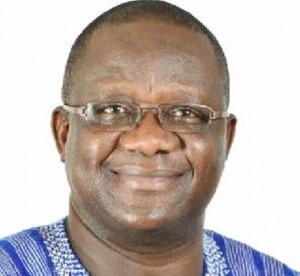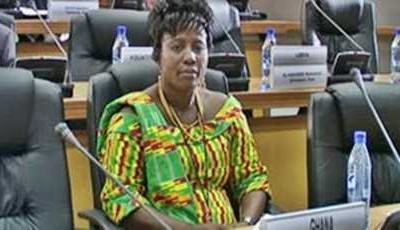Warning: Undefined array key "dirname" in /home/anapuafm/public_html/wp-content/themes/anapuafm/include/plugin/filosofo-image/filosofo-custom-image-sizes.php on line 133
Warning: Undefined array key "extension" in /home/anapuafm/public_html/wp-content/themes/anapuafm/include/plugin/filosofo-image/filosofo-custom-image-sizes.php on line 134
What next after NPP’s record of 1st National Chairman from north
 The New Patriotic Party (NPP) has recorded its first National Chairman from the north of the country. He is Mr Paul Awentami Afoko.
The New Patriotic Party (NPP) has recorded its first National Chairman from the north of the country. He is Mr Paul Awentami Afoko.
At the party’s historic national delegates conference held at the Tamale Sports Stadium last Saturday, the 5,265 delegates took a decisive decision to elect Mr Afoko as the national chairman
By 2:30 a.m. last Sunday everything pointed to an Afoko victory. It was, therefore, not surprising when, at 5:30 a.m., officials of the Electoral Commission (EC) declared him the new national chairman, having garnered 2,032 votes out of the 5,265 cast in the election.
The incumbent National Chairman, Mr Jake Otanka Obetsebi-Lamptey, who was first on the ballot and who had to contend with a number of allegations regarding his tenure of office, got a slap on the face by getting a meagre 66 votes.
Mr Stephen Ntim, who was second on the ballot and was making his third attempt at the position, did not seem to have benefited from his popular mantra, “Ye Nim Wo Firi Tete” (We have known you for ages), except that he polled a respectable 1,500 votes.
Mr Fred Oware, from the Central Region and incumbent First Vice National Chairman, did not benefit from the regionalism advantage as he polled 1,135 votes.
Among the new faces to serve on the executive committee with Mr Afoko are Mr Kwabena Agyepong, General Secretary; Mr Freddie Blay, First Vice Chairman; Mr Sammy Crabbe, Second Vice Chairman; Mr F. F. Antoh, Third Vice Chairman, and Mr Sammy Awuku, National Youth Organiser.
Others are Alhaji Kamal-deen Abdulai, National Nasara Coordinator; Mr John Boadu, National Organiser, Mr Emmanuel Abankwah Yeboah, National Treasurer, Madam Otiko Afisa Djaba, National Women’s Organiser, retained her position to continue to serve the executive.
They will lead the party until 2018.
Controversies
There had been no doubt that Mr Afoko was the frontrunner in the race. There had, however, been troubling moments and controversies before the conference, especially the needless controversy his recent letter to the National Vetting Committee seeking clarification on the composition of the electoral college had generated in the party, as well as his near disqualification during his vetting.
Significantly, in spite of all these challenges, Mr Afoko, who is from Sandema in the Upper East Region, managed to carry the day.
Why Afoko won
Mr Afoko started his campaign early and, therefore, had a head start, which Mr Obetsebi-Lamptey had complained about in one of his media interviews.
It is also believed that Mr Afoko was helped by the decision of both Mr Obetsebi-Lamptey and his first Vice, Mr Oware, to contest the same position. The two ended up confusing their core voters and, thereby, created a favourable opportunity for Mr Afoko to sail through.
Since 1992, the NPP has had voter crisis in the three northern regions, winning insignificant margins. Mr Afoko’s election is, therefore, expected to reverse the trend, as he has to play a pivotal role in finding a solution to the crisis. He is also expected to bring the Zongo and settler communities into the NPP fold.
As a firm believer in the Danquah-Busia-Dombo tradition, Mr Afoko’s election is expected to help water the feeble roots of the NPP in the three northern regions.
In the course of electioneering towards the conference, Mr Afoko positioned himself as an independent candidate, the most neutral aspiring chairman, and won the hearts and minds of the delegates with his ‘New Plan for Power agenda.
He has already pledged to remain neutral in the contest for the presidential candidature.
His campaign strategy, organisational abilities, effectiveness and resourcefulness also placed him in pole position.
Electoral plight of NPP
Some schools of thought have opined that the NPP is losing its electoral appeal.
It has suffered two very close electoral defeats in the 2008 and the 2012 presidential polls. In 2008, its presidential candidate, Nana Addo Dankwa Akufo-Addo, lost the run-off by about 40,000 votes. In 2012, he lost by more than 300,000 votes.
In the 2012 elections, the NPP managed to secure victory in only two of the 10 regions. Significantly, the votes of the ruling party, the National Democratic Congress (NDC), in both NPP “World Banks” of the Ashanti and the Eastern regions have increased substantially. This means that NPP votes in the Eastern and the Ashanti regions are declining steadily.
The party is also facing difficulty making strong in-roads in the Brong Ahafo, Central, Western and Greater Accra regions. In the parliamentary polls, the NPP performed poorly in 2012 than in 2008.
This is the election story of the NPP as it gets ready for Election 2016.
Prepare for government/power
In his acceptance speech on behalf of the newly inaugurated national executive, Mr Afoko charged NPP members, supporters and sympathisers to prepare to form the next government.
But, as they say, it’s easier said than done.
For the NPP to attain this giant ambition of forming the next government in 2017, all winners in the just-ended conference must be magnanimous in victory and all losers gracious in defeat.
Mr Afoko is leading a new team of executive, with the exception of Madam Djaba, who was retained from the previous executive. The NPP must, therefore, quickly reconcile all hurt feelings, unite and develop the idea and interest that they have a new chairman and, for that matter, a new national executive who must be supported. The perceived Kufuor/Alan and Nana Akufo-Addo camps must be done away with, while the new executive must lead by example by offering fair and transparent leadership.
Immediate task ahead
The newly elected executive must, as a matter of priority, roll out their new plan for power which Mr Afoko explains is to re-unite, rebrand, rejuvenate and re-invigorate the party for victory in the 2016 election. They must also embark on a unity crusade to bring everybody on board the NPP train marching to victory in Election 2016.
The programme of action of all individual executive members must also be quickly synchronised into one working document.
The conference is over; the family gathering in Tamale is over. It’s time for work and the NPP needs all hands on deck to remain relevant.
Source: Daily Graphic




